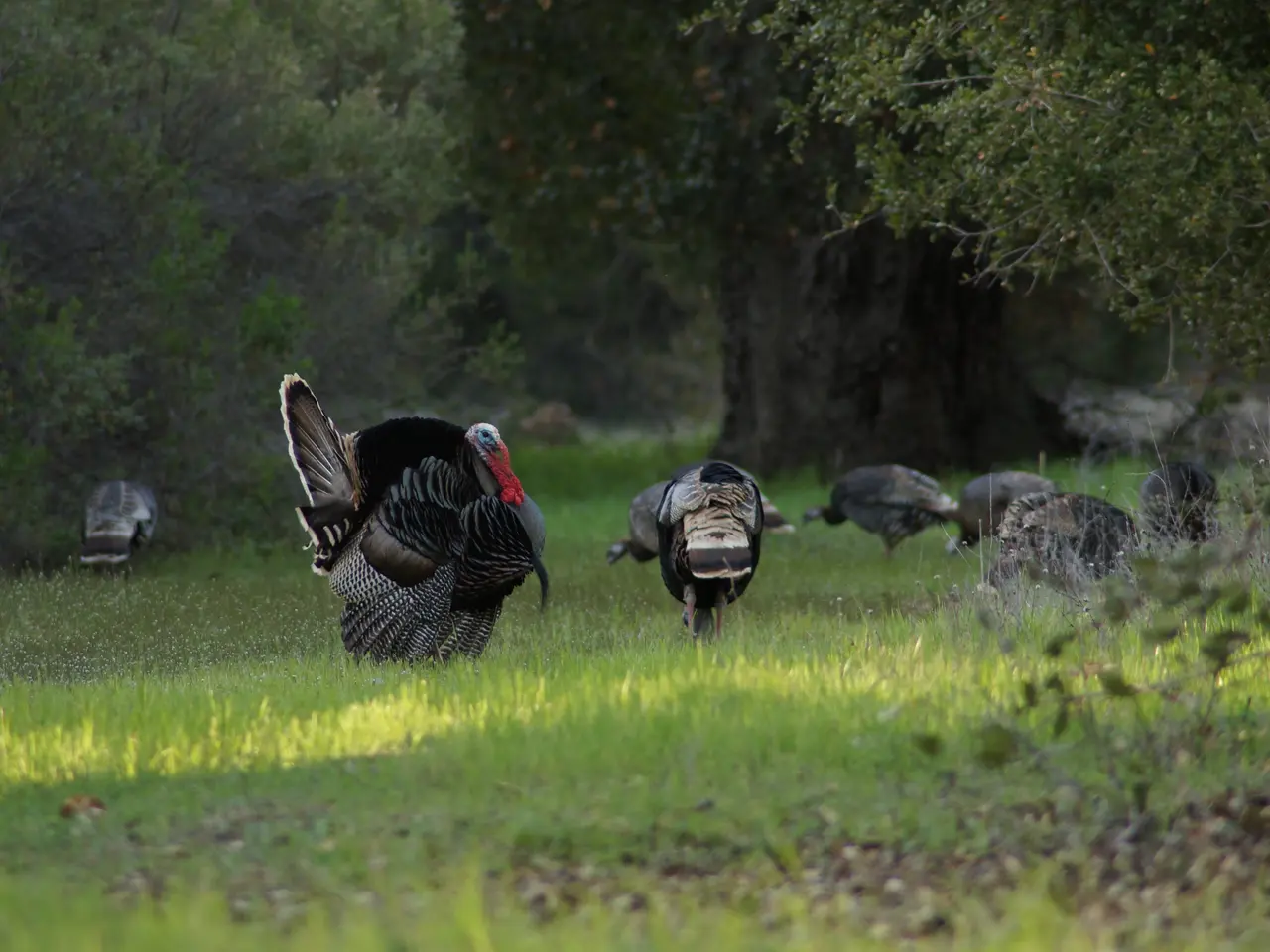Turkey's olive industry undergoing a green transformation, encountering its challenges
In the heart of the Mediterranean, Turkey's olive groves stretch across more than 900,000 hectares, home to over 200 million olive trees [1]. However, the sector faces a slow-burning crisis as it grapples with the effects of climate change.
Current challenges for Turkish olive farmers include increased extreme weather events, erratic rainfall, rising input costs, and soil degradation [1]. Small-scale producers, who make up 82% of the sector, struggle to access technical and financial support to adapt and commercialize their native olive varieties in a changing climate [1]. Water management is a critical vulnerability, with outdated irrigation methods and slow adoption of climate adaptation tools threatening long-term resilience [1].
The report warns that basin-level water management plans, drip irrigation, and rainwater harvesting need to be scaled up urgently [1]. Drought stress, due to one of the worst droughts in decades, has impacted agricultural output [4]. Soil quality issues are also a concern, with 38% of soils in olive-growing areas being below critical organic matter thresholds, reducing resilience to climate shocks [1][5].
Regulatory and land use pressures, such as new laws allowing mining in protected olive-growing areas, could pose environmental risks and compete with agricultural land [2]. To improve water management strategies, Turkish olive farmers should scale up basin-level water management plans, expand the use of efficient irrigation techniques like drip irrigation, adopt rainwater harvesting, implement agroecological practices, and collaborate with networks promoting agroecological transitions [1][3].
The Turkish Olive Gene Bank in Izmir houses 92 domestic and 28 international olive varieties, playing a strategic role in conservation and potential cross-breeding for resilience [6]. The European Union's Green Deal drives regulatory changes across supply chains, presenting both challenges and opportunities for Turkey's olive producers [7]. Access to agricultural insurance, early warning systems, and state support remains patchy in the Turkish olive industry [8].
Support for native olive cultivars in Turkey, unique to specific regions and climates, remains minimal, despite their potential to reposition Turkish olives in global niche, premium markets [9]. Women play a central role in the Turkish olive industry, particularly in production and cooperatives [10]. The Turkish olive industry is heavily reliant on outdated irrigation methods [11].
The National Olive and Olive Oil Council (UZZK) continues to serve as a key coordination platform in Turkey's olive industry [12]. As of now, most of the economic and ecological value from native olive cultivars remains latent in Turkey [13]. The report highlights the rich heritage, biodiversity, and local know-how within Turkey's olive sector [6].
To date, 29 Turkish agricultural products have secured Protected Designation of Origin (PDO) status in the EU, giving compliant producers an advantage in high-value export markets [14]. However, many olive farmers lack sufficient information about climate change and its effects [1]. The report offers one of the most comprehensive assessments to date of how climate change is impacting Turkey's olive industry [15].
In summary, addressing both technical water management improvements and broader ecosystem health will be vital for Turkish olive farmers to adapt sustainably to climate change challenges [1][3]. The country's approach must modernize to ensure the resilience of one of its most celebrated crops.
- Olive groves, a significant part of Turkey's landscape, spanning over 900,000 hectares and home to more than 200 million olive trees, are currently facing a crisis due to the effects of climate change.
- water management, particularly basin-level water management plans, drip irrigation, and rainwater harvesting, need to be scaled up urgently to address the water vulnerability of Turkish olive farmers.
- Regulatory and land use pressures, such as new laws allowing mining in protected olive-growing areas, could pose environmental risks and compete with agricultural land.
- Collaboration with networks promoting agroecological transitions, implementing agroecological practices, and adopting efficient irrigation techniques like drip irrigation can improve water management strategies in the Turkish olive industry.
- The European Union's Green Deal presents both challenges and opportunities for Turkey's olive producers, as it drives regulatory changes across supply chains.
- The Turkish Olive Gene Bank in Izmir plays a strategic role in conserving and potentially cross-breeding olive varieties for resilience, providing a significant resource for the industry.
- The report highlights the need to address both technical water management improvements and broader ecosystem health to ensure the resilience of Turkey's olive industry in the face of climate change challenges, emphasizing the importance of modernizing the country's approach to maintaining the sustainability of one of its most celebrated crops.




